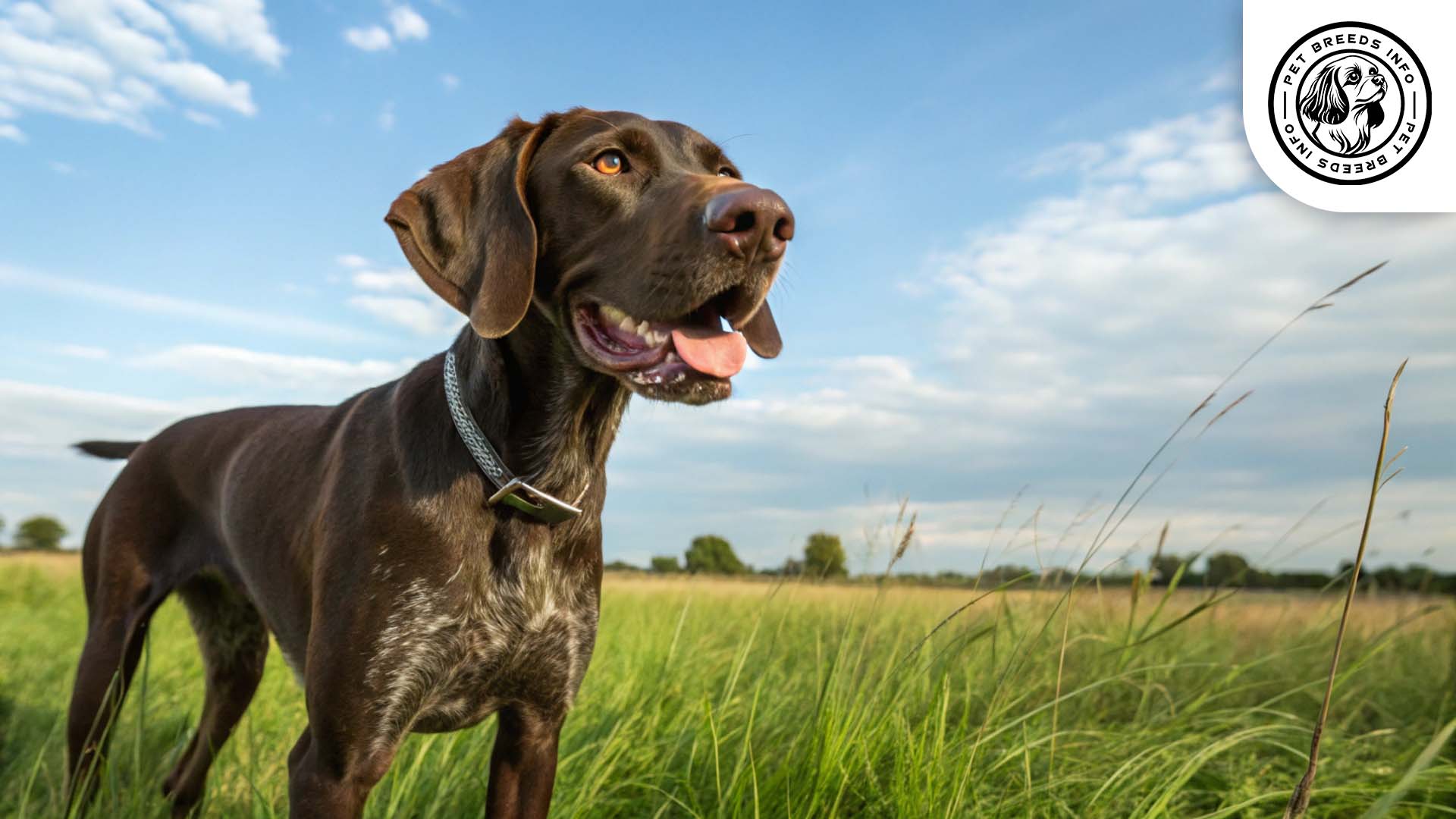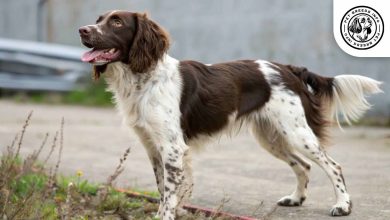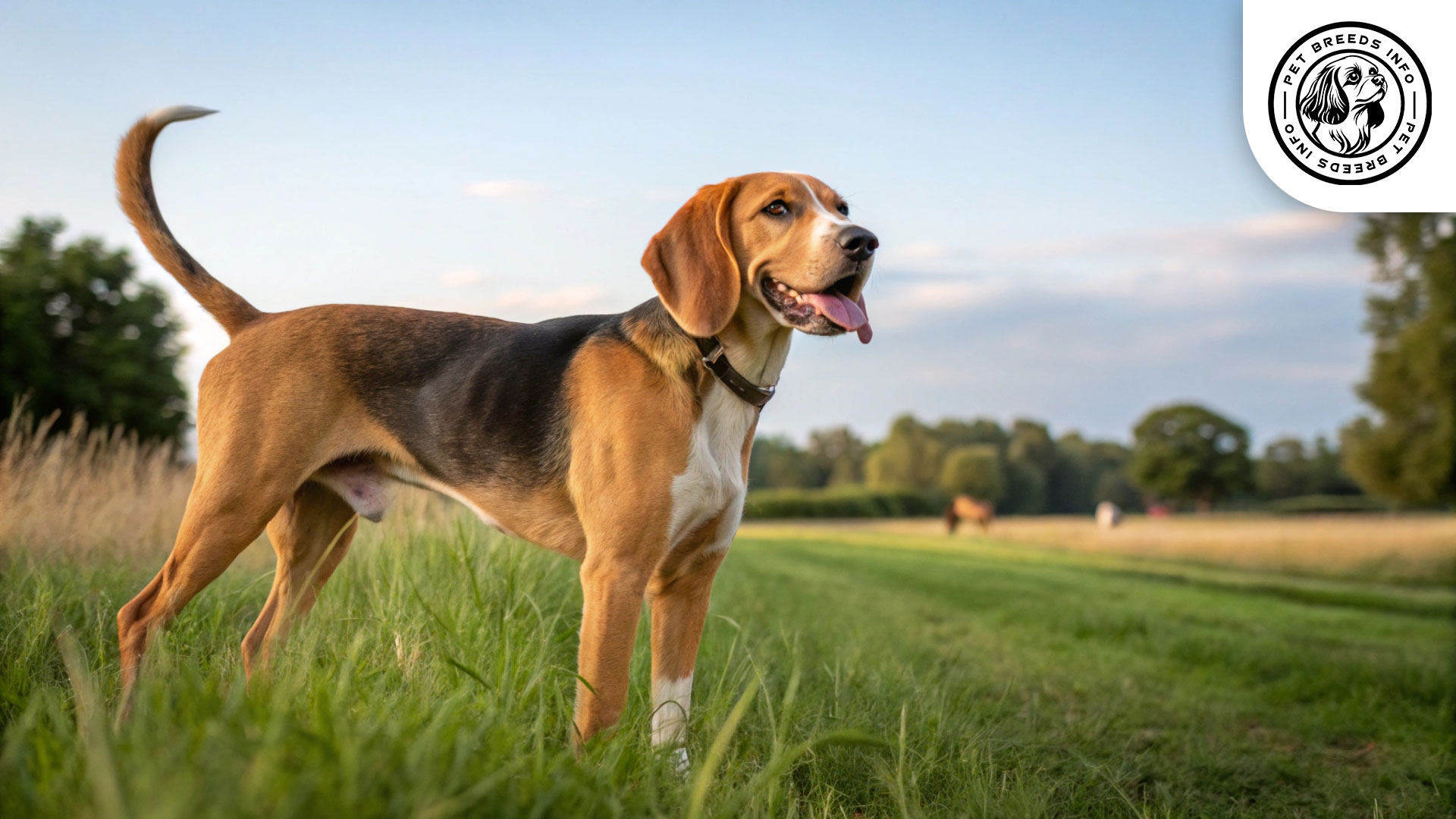German Shorthaired Pointer Dog Breed : Size, Price & Personality
General Introduction of the Breed
The German Shorthaired Pointer (Deutsch Kurzhaar) is a versatile hunting dog originating from Germany. Developed in the 19th century, this breed was designed for hunting both on land and in water. Its ancestors include Spanish Pointers and local German breeds, resulting in a highly adaptable and skilled gundog.
Table of Contents
| Weight | Males: 55-70 lbs (25-32 kg), Females: 45-60 lbs (20-27 kg) |
| Lifespan | 12-14 years |
| Diet | High-protein diet (kibble, raw, or natural foods), avoid chocolate, onions, garlic, and grapes |
| Care | Requires daily exercise, minimal grooming (weekly brushing), regular hygiene (nail trimming, ear cleaning, teeth brushing) |
| Health | Common issues: hip dysplasia, bloat, progressive retinal atrophy, prone to ear infections |
| Color | Liver, liver and white, roan, spotted or ticked patterns |
| Nature | Loyal, energetic, affectionate, great with children and other pets when socialized properly |
| Price | $800 to $2,500, depending on lineage and breeder reputation |
Physical Characteristics
Males typically stand between 23-25 inches (59-64 cm) tall and weigh around 55-70 lbs (25-32 kg). Females are slightly smaller, standing 21-23 inches (53-58 cm) tall and weighing 45-60 lbs (20-27 kg).
The coat is short, dense, and water-resistant, with color variations including liver, liver and white, roan, and spotted or ticked patterns.
The eyes are medium-sized, almond-shaped, and typically brown in color. The ears are broad, set high, and hang close to the head. The tail is often docked to about 40% of its natural length, though this varies by country.
Distinctive features include their athletic, muscular build and sleek appearance.
Read More: Bull Terrier Dog
Personality and Temperament
The German Shorthaired Pointer is highly intelligent and quick to learn. It has boundless energy and requires regular mental and physical stimulation.
This breed is highly attached to its owners and thrives on companionship. It is known for being affectionate, loyal, and friendly with family members.
GSPs interact well with children and other pets when socialized properly. However, their strong prey drive can make them less suitable for homes with small animals.
They are highly playful and excel in retrieving games. Due to their sensitivity, they respond best to positive reinforcement training.
Care and Maintenance Requirements
The German Shorthaired Pointer requires extensive daily exercise, including running, swimming, or interactive games.
This breed is best suited for homes with large yards or active owners who enjoy outdoor activities.
Grooming is minimal, as their coat sheds moderately and only requires weekly brushing. Bathing is only necessary when they get dirty.
They are moderately tolerant of cold weather but may require protection in extreme temperatures. In hot climates, they need access to shade and water.
Regular hygiene includes nail trimming, ear cleaning, and brushing teeth to prevent infections and dental issues.
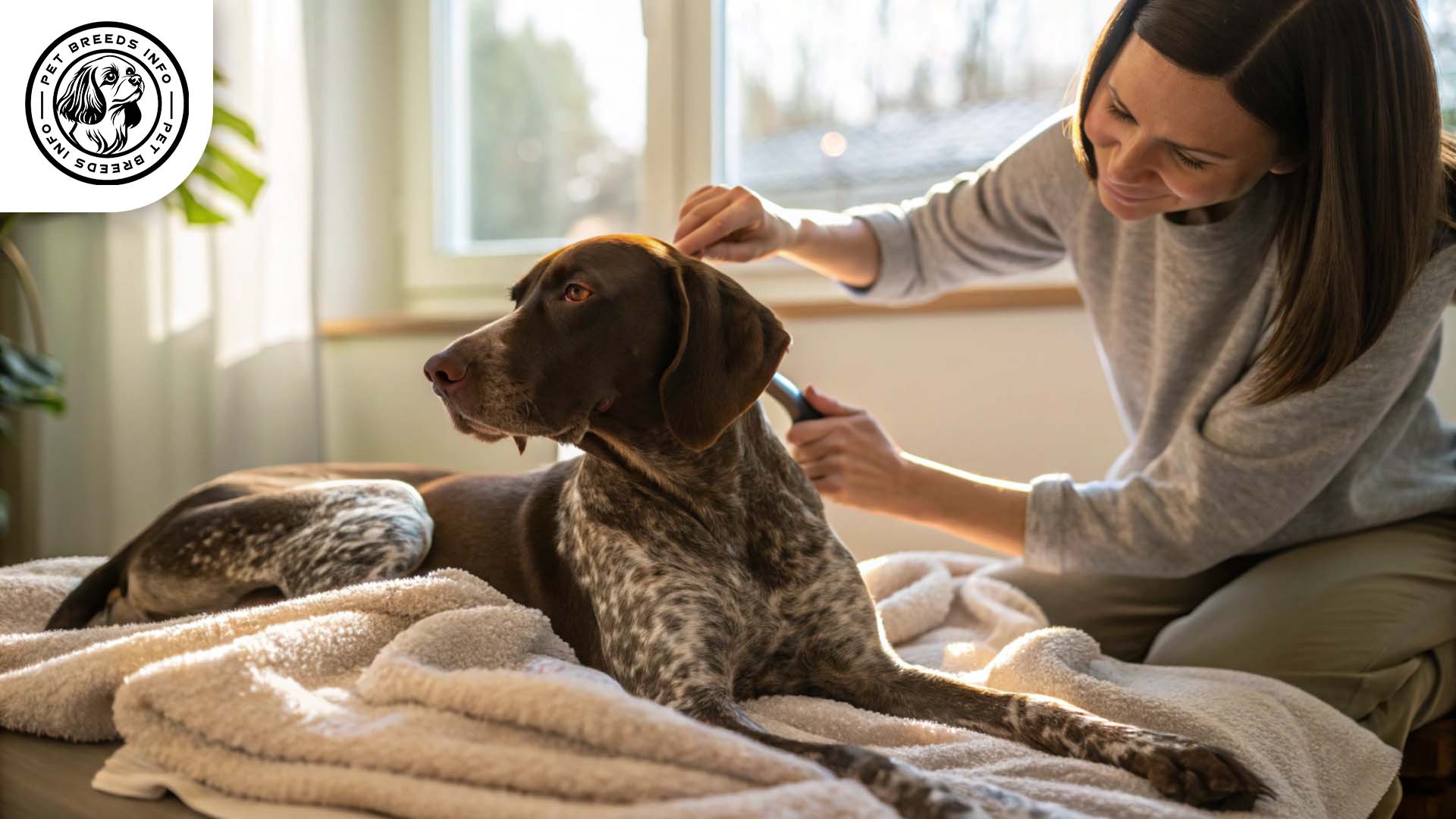
Diet and Nutrition
A high-protein diet with quality kibble, raw, or natural foods suits this breed best.
They require balanced meals rich in protein, healthy fats, and essential nutrients. Avoid overfeeding, as they are prone to obesity.
Foods to avoid include chocolate, onions, garlic, grapes, and excessively fatty foods.
Recommended feeding is two meals per day, with portion sizes adjusted based on the dog’s age, activity level, and weight.
Read More: Brittany Spaniel Dog
Health and Common Medical Issues
Common genetic conditions include hip dysplasia, bloat (gastric torsion), and progressive retinal atrophy.
The breed can be sensitive to allergens and prone to ear infections due to its floppy ears.
The average lifespan is around 12-14 years.
Routine veterinary care, vaccinations, and parasite prevention are essential for maintaining good health.\
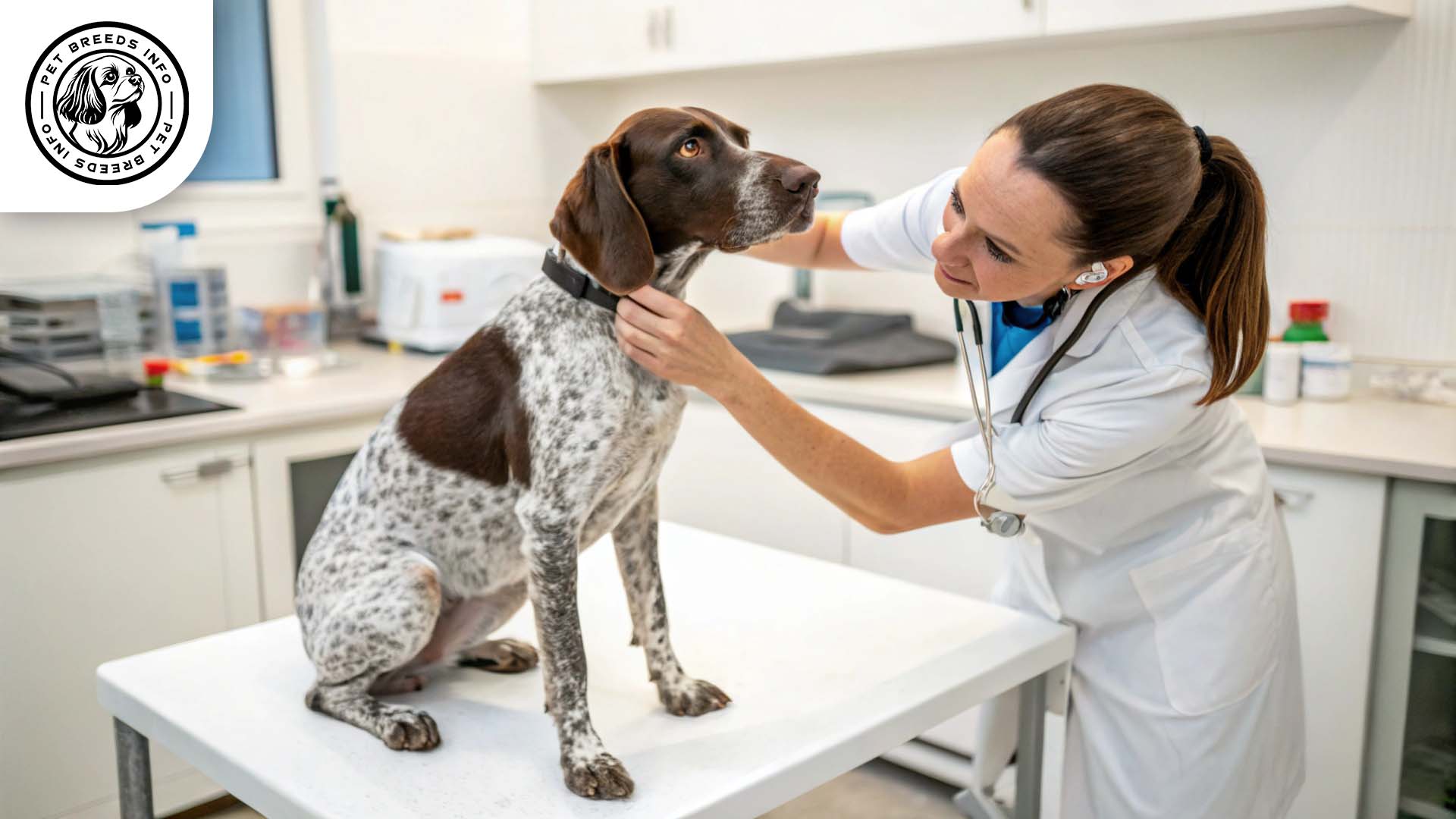
Training and Behavior Management
Training a German Shorthaired Pointer is relatively easy due to their intelligence and eagerness to please.
Consistency and positive reinforcement methods like treats and praise work best.
Early socialization is crucial to prevent excessive shyness or aggression. Exposure to various environments and experiences helps create a well-rounded companion.
Basic obedience training should start early. Advanced training, such as agility or hunting skills, can keep their minds engaged.
Interaction with Other Animals and Humans
GSPs are generally great with children due to their affectionate and playful nature.
They get along with other dogs but may chase smaller pets due to their hunting instincts.
They are best suited for active families or individuals who have the time and space to accommodate their energy levels.
While they can stay alone for short periods, prolonged isolation can lead to anxiety and destructive behavior.
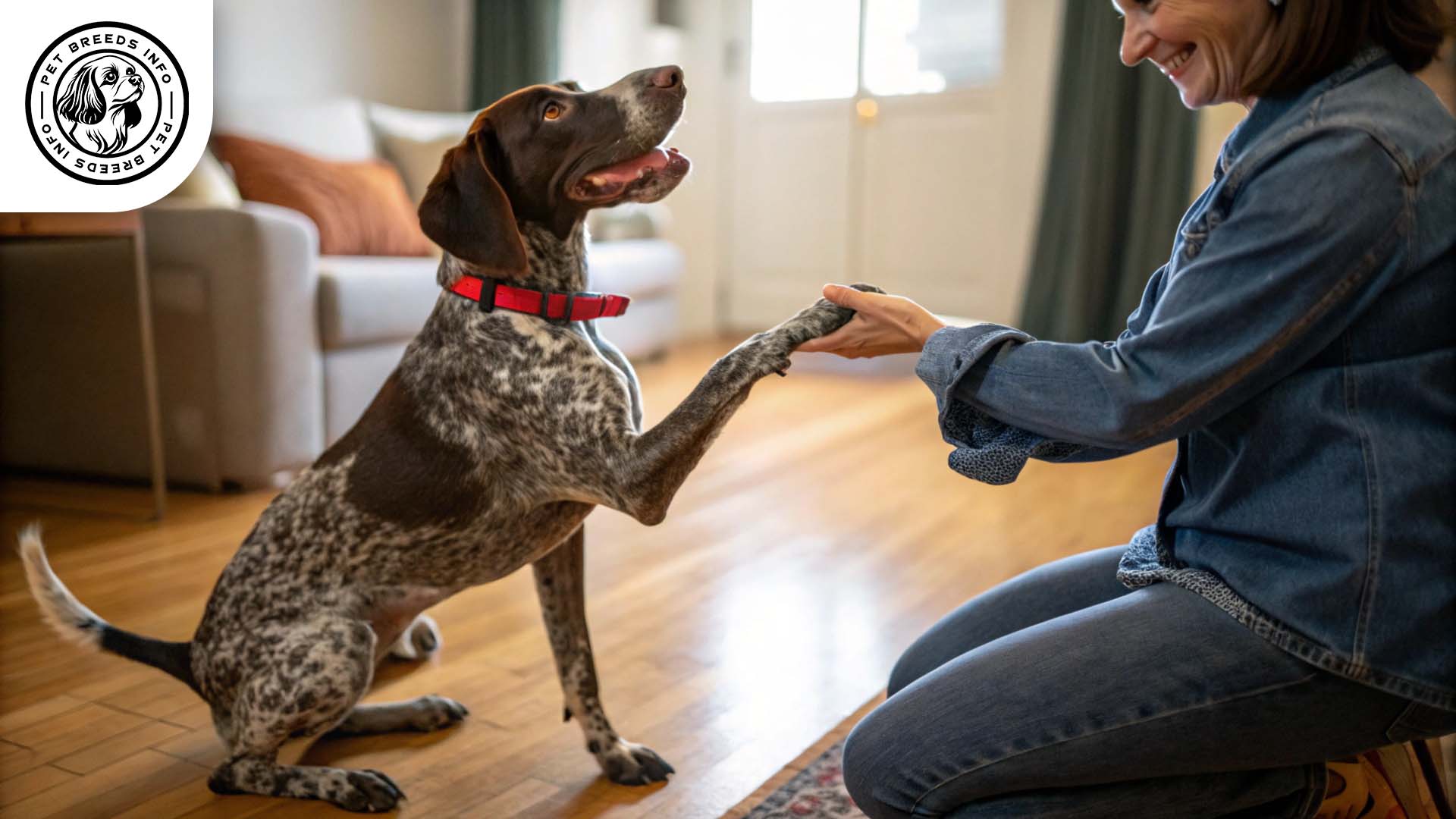
Price and Availability
The cost of purchasing a German Shorthaired Pointer from a breeder ranges from $800 to $2,500, depending on lineage and breeder reputation.
When adopting or buying, ensure that the breeder is reputable and provides health screenings.
Rescue organizations and shelters are also excellent sources for adopting a GSP.
Read More: Finnish Spitz Dog
Conclusion and Final Thoughts
The German Shorthaired Pointer is a loyal, energetic, and intelligent breed, making it an excellent choice for active owners.
It thrives in an environment with plenty of exercise and mental stimulation, making it less suitable for apartment living.
Potential owners should be prepared for an active lifestyle and a committed training and exercise routine.
Overall, the German Shorthaired Pointer is a wonderful, trainable, and affectionate companion for the right owner.
FAQ
What is the lifespan of a German Shorthaired Pointer?
The average lifespan is 12-14 years.
How much exercise does a German Shorthaired Pointer need?
This breed requires daily exercise, including running, swimming, and interactive games.
Are German Shorthaired Pointers good with children?
Yes, they are affectionate, friendly, and generally good with children.
What should I feed a German Shorthaired Pointer?
A high-protein diet with balanced meals rich in protein, healthy fats, and essential nutrients is recommended.
How much does a German Shorthaired Pointer cost?
The cost typically ranges from $800 to $2,500, depending on the breeder and lineage.
